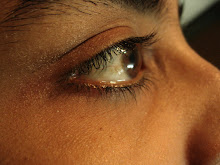Through Aruna's Story, we get a glimpse of the person she was, the society she lived and was never really part of, and the people who made her experiences her life. Obviously, Virani has put in a huge amount of effort, time and more than a slice of herself into her book. From the perspective of a reader who is interested in what happened to Aruna, who wants to see her more than just a case and a tragic one at that, reading the book has been an eye opener.
Aruna's life raises a very important question of faith -- Why would God put anybody through what she has undergone? Is there a God then? What is the purpose of such a life? What is the faith we can hold on to in that case?
There are many nurses who have worked with Aruna, before the attack on her in November 1973 -- two days before she was to go on a three-month leave in which she was to get married to a colleague who she was in love with -- and have tended to her since then.
Aruna's zest for life, her positive strength, her faith in herself and her personal God, her determination to carve out a worthy life for herself despite her humble beginnings, when contrasted with her post-rape condition brought tears to my eyes. So many of her colleagues and the generations of nurses who tended to her in the past almost four decades have come up with the same questions.
What's keeping her alive? Cortically blind, with a brain so dramatically damaged that it prevents her from seeing, speaking or communicating, but keeps her alive to pain and fear, Aruna lives a vegetative existence. She will turn 62 on June 1, 2010. Of these years, she has spent less than half the years fighting to become successful in her chosen field. She had dreams, she worked towards those dreams, believed in justice and tried to be fair and loyal to the King Edward Medical College and Hospital, where she worked.
It was, in a way, that very self-confidence that brought her ruin. So many of her senior nurses at one time or the other spoken about the fine delicate balance between man and woman. Many have suggested that because she ticked off a sweeper who stole food allotted for dogs, she incurred his wrath. While nobody ever says so directly, the sweeper's brutal assault on her seems to be in a way justified if I may say so, for her overbearing, domineering persona.
The author brings up the failure of the system and society to punish her rapist, but the matron and other senior nurses blame Aruna's brave demeanour and devil-may-care attitude for what came upon her. One suggests she shouldn't have got into a fight with somebody so far below her status, though she acknowledges her loyalty to the hospital.
Many people have prayed for Aruna's death and deliverance. But there seems to be some sin in some past life she is paying for. Whatever be it, each person relates to a tragedy in their own way. Some believe her spirit is keeping her body alive so that she may see justice done to her, others still believe she is bearing the cross for the sins of others like Jesus Christ.
One can only hope and pray that Aruna Shanbaug finds the peace that has eluded her in life in death and afterlife.
It is ironical that somebody who was so keen on justice that she took on a sweeper who stole food meant for dogs, lived a dog's life because of that same criminal.
Is there something to do with the Bhagawad Gita here, where Lord Krishna tells Arjuna,
Do not think you are the doer. It is me alone who is the instrument as well as the cause.
Still thinking, still looking.

It is very sad to think of Aruna's plight. Particularly because we are left to imagine what she must be going through based on what we can do vs what we think she can't. What also makes it worse is we can never find out what is on her mind.
ReplyDeleteI hope she finds her peace as well. And I hope everyone around her find their peace with regard to her.
What Lord Krishna tells Arjuna is a quite debatable. I guess culprits like the sweeper would find refuge in this statement and end up saying, "I din't do it, HE did it!"
This comment has been removed by the author.
ReplyDelete